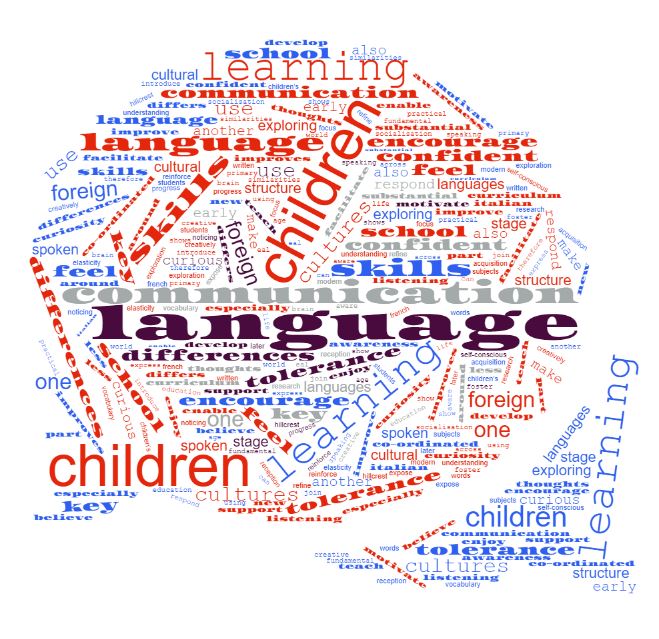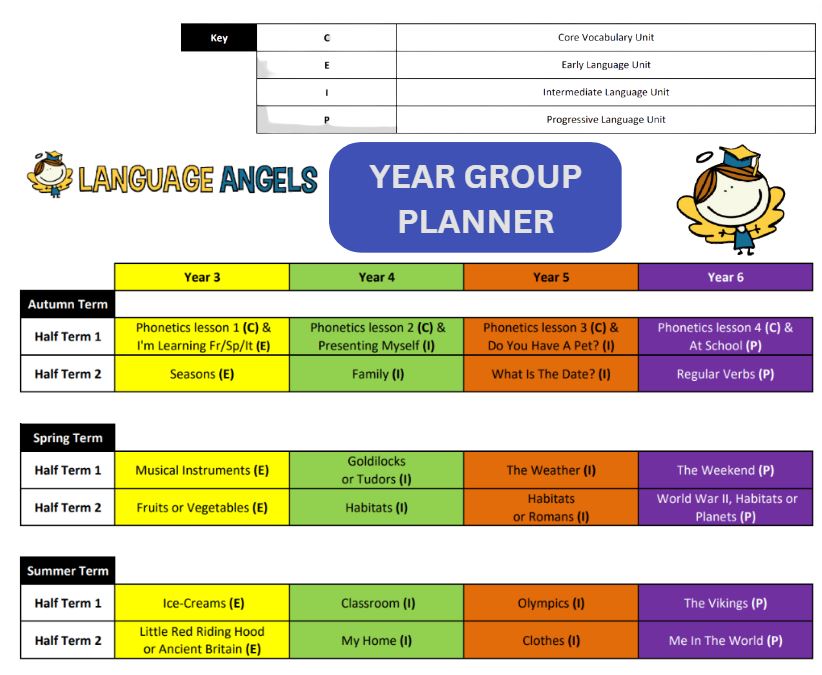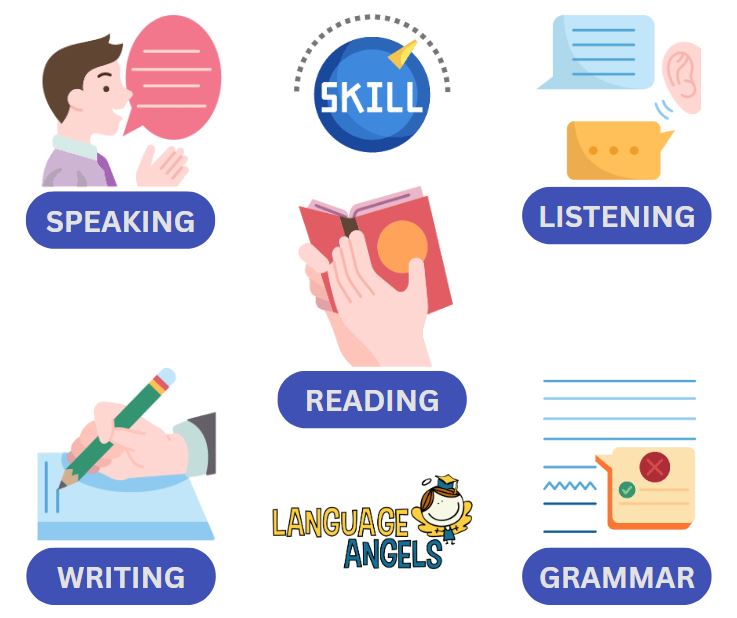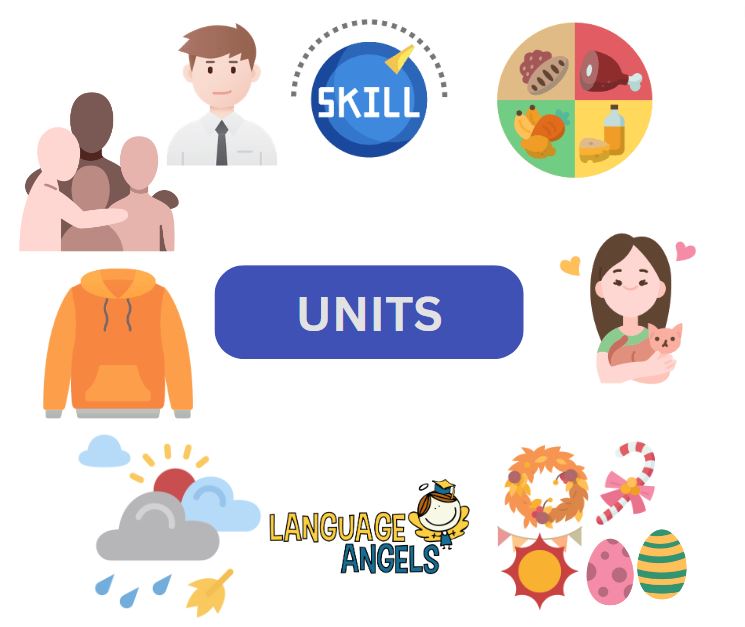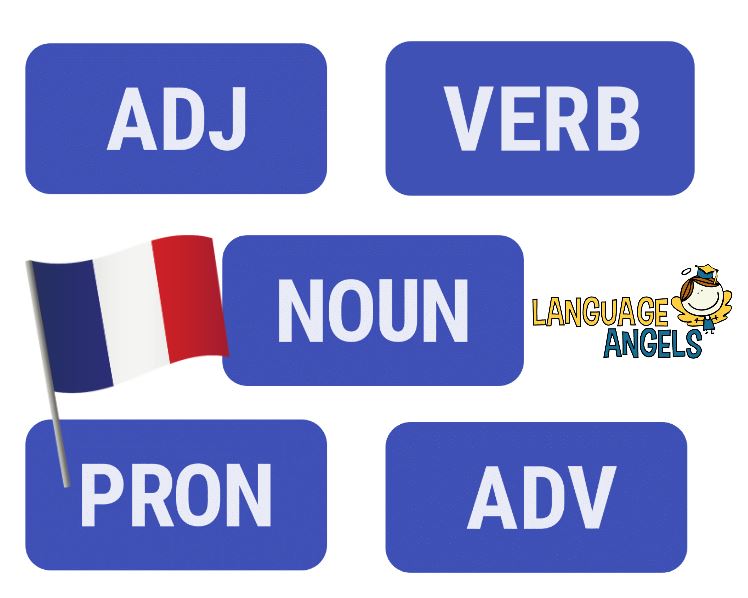Modern Foreign Languages

Hillcrest's 5 Principles for Modern Foreign Languages
At Hillcrest, each subject team has created 5 key principles, outlining what makes up quality teaching in each subject:
|
|
|
|
|
|
|
|
|
Click on the INTENT, IMPLEMENTATION and IMPACT bars below to discover why and how we teach Modern Foreign Languages.
INTENT Statement for Modern Foreign Languages
At Hillcrest Primary School we believe that learning a modern foreign language and exploring other cultures is a fundamental part of children’s early education. Through learning a language children develop tolerance and understanding about the world around them and reinforce skills of communication, socialisation and cultural awareness. Research shows that learning a language also improves the elasticity of the brain*. In our school we teach French to all of Key Stage 2 so that children can make substantial progress in one language. We introduce Italian in Key Stage One and Reception and also foster and encourage the use of all languages especially those of our students with EAL.
Curious- To motivate children to feel curious about exploring both spoken and written language and are therefore less self-conscious about using new vocabulary. Children to show curiosity about other cultures and respond to the words spoken.
Creative- To support children to use language creatively across the curriculum, noticing similarities and differences between languages.
Co-ordinated- To expose children at an early age to a foreign language to enable acquisition; to make children aware that language has structure and that the structure differs from one language to another.
Communication – To focus on practical communication; to facilitate foreign language learning in later life; to improve communication about, and tolerance for, cultural differences; to refine speaking and listening skills in all subjects.
Confident – To encourage all children to join in and respond to language learning; to enjoy language learning and exploration of other cultures, and to feel confident to use their skills to express their thoughts in another language.
IMPLEMENTATION Statement for Modern Foreign Languages
Although not compulsory in Key Stage 1 and EYFS, languages are introduced through discrete language assemblies, specifically learning basic Italian numbers and phrases. We show respect for a range of other languages by allowing the children to answer the register, or other daily routines, in a language of their choice, with extra focus on the languages spoken by our children with EAL. We occasionally invite in parents of children with EAL to hear authentic language spoken. This is something that continues into Key Stage 2.
In Key Stage 2, MFL are taught in discrete, 30-minute lessons once per week. Our curriculum focuses on the learning and understanding of French across the four years, allowing for substantial progress to be made in the language. We use the French scheme ‘Language Angels’ to ensure continuity and consistency across the year groups. This allows the children to access and engage with the language and explore patterns and sounds by learning through songs, games and practical discussions with their peers.
At Hillcrest, we also hold themed curriculum days in French and invite native speakers to join us. We have links with the local high school, who allow their students studying languages to come and teach different year groups within our school.
Curious – Finding time to ask and answer questions from pupils in lessons.
Creative – Imagining situations and plan which words and phrases you would use to speak and respond; Engage in conversations; ask and answer questions; express opinions; respond to others.
Co-ordinated – Being aware of what you need to do to improve your language skills, such as accuracy of pronunciation and intonation.
Communicate – Learning new words and phrases to communicate facts, descriptions and feelings in speech and writing; helping each other to express ourselves in French; using a dictionary to assist communication.
Confident - Trying out our skills and knowledge, having another try; read carefully and show understanding of words and phrases in simple writing; write phrases from memory and adapt these phrases to create new sentences.
IMPACT Statement for Modern Foreign Languages
As a result of the successful implementation of our French curriculum, Hillcrest pupils are active globally aware citizens with a strong interest in other cultures. Pupils leave Hillcrest with a strong foundation of basic French, in reading writing, listening and speaking.
Co-ordinated Assessment: The majority of assessment in French is formative. Teachers will use evidence of class, group and individual discussions as well as responses to learning activities. We use the Languages Ladder for teachers to assess against before recording data on a termly basis.
Communicating with parents: a summary of children’s progress and achievement is reported on in the end of year report.
Curious Monitoring: subject leaders have a yearly revised action plan and policy. Subject leaders monitor lesson delivery, planning and assessment through the academic year.
Creative Monitoring: subject leaders are aware of any issues that arise within the planning, delivery or assessment of MFL and respond creatively in order to improve outcomes.
Confident Team – The security and flexibility of the Language Angels scheme means that staff are confident to deliver French lessons, even with limited subject knowledge. A confident team of MFL teachers increases the confidence and enjoyment of the children we teach.
Explore the blue banners below to find out more about what specific themes we teach in Modern Foreign Languages and how these themes are revisited, recalled and expanded upon as the children journey through the school.

Year Group Overviews for Modern Foreign Languages
Progression for Modern Foreign Languages
We will help Hillcrest pupils develop and demonstrate substantial progress in the 5 key language skills necessary for learning some Italian in EYFS and Key Stage 1, followed by French in Key Stage 2:
- Speaking
- Listening
- Reading
- Writing
- Grammar
We aim to ensure that pupils of all abilities develop solid foundations in these key language learning skills - properly preparing them for the next stage of their language learning journey. These skills will develop children’s ability to understand what they hear and read and enable them to express themselves in speech and writing.
We will extend their knowledge of how language works and explore the similarities and differences between the foreign language they are learning and English. We will also help strengthen their sense of identity through learning about culture in other countries and comparing it with their own.
Click on the image below to access our Progression documents:
SKILLS PROGRESSION BY YEAR GROUP SKILLS PROGRESSION BY UNIT
GRAMMAR PROGRESSION (KS2)
Learning Journey for Modern Foreign Languages (coming soon)







